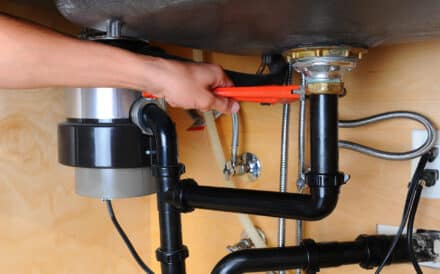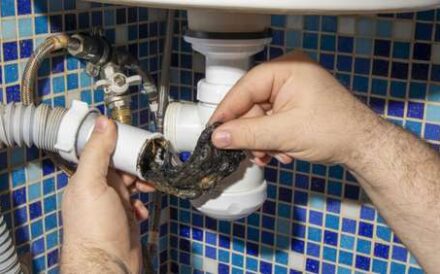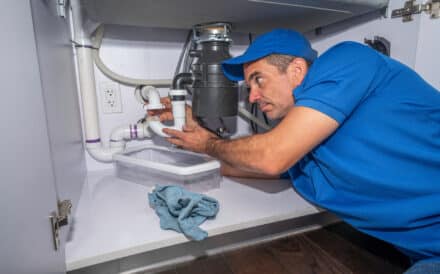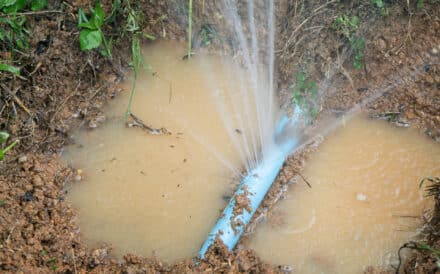Why Is My Southwest Gas Bill So High?: A Comprehensive Guide to Lowering Your Gas Bills
If you find yourself wondering, “Why is my gas bill so high?” fear not! This comprehensive guide will help you identify potential causes and offer practical solutions to lower your gas bills effectively. By implementing the strategies outlined in this article, you can save both energy and money, making your home more efficient and environmentally friendly.

Gas Leaks and Safety
Gas leaks are a serious concern and a potential cause of high gas bills. The safety of your household should always be the top priority. If you ever suspect a gas leak, take immediate action:
- Identify signs of a gas leak, such as hissing sounds or the smell of rotten eggs.
- In case of suspicion, evacuate the premises and avoid using electrical switches or open flames.
- Call your gas company or emergency services to report the leak.
- Avoid re-entering your home until the area is declared safe.
Plumbing and Hot Water Leaks
Hidden plumbing leaks can cause a continuous drain on your hot water heater, resulting in higher gas bills. To identify and address these leaks:
- Regularly check visible plumbing areas for leaks or dampness.
- Hire a licensed plumber to inspect hidden pipes and detect any leaks.
- Promptly fix any identified leaks to prevent further damage and gas wastage.
Pool Leaks and Gas Consumption
If you have a pool, it could be a surprising culprit for a high gas bill. Leaky pools lead to water loss, requiring constant heating to maintain desired temperatures. To address this issue:
- Conduct a pool leak test using a bucket and monitor water levels to identify leaks.
- Hire a pool professional to fix leaks and optimize your pool’s gas usage.
Maintenance and Efficiency of Appliances
Your hot water heater plays a significant role in your gas consumption. To ensure it operates efficiently:
- Schedule regular maintenance checks by a licensed plumber to improve heater efficiency.
- Consider replacing an old or inefficient hot water heater with an energy-efficient model to reduce gas usage.
- Install a timer or a tankless water heater to only heat water when needed.
Weather and Seasonal Impact
Weather and seasons directly can also affect your gas consumption:
- Implement strategies to manage gas usage during extreme weather conditions.
- Use weather-stripping and insulation to maintain indoor temperatures efficiently.
- Consider investing in a programmable thermostat to automatically adjust heating and cooling settings based on your schedule.
Behavioral Changes and Energy Conservation
Your daily habits can significantly impact your gas bill:
- Adopt energy-conscious behaviors, such as turning off lights and appliances when not in use.
- Embrace natural heating and cooling methods to reduce reliance on gas-powered systems.
- Encourage family members to be mindful of energy usage and involve them in energy-saving initiatives.
Understanding Your Gas Bill
Your gas bill provides important information about your energy usage and expenses. Understanding the components of your gas bill is crucial for managing your gas consumption and identifying potential ways to lower your costs. Here’s a breakdown of the essential elements on your gas bill:
- Billing Period: Indicates the duration covered by the bill, usually monthly or bi-monthly.
- Account Information: Includes your account number, customer name, and service address for identification.
- Gas Usage Details: Provides the meter readings for the beginning and end of the billing period, showing your total gas consumption.
- Gas Rates and Charges: Outlines the cost per unit of gas consumed and any additional fees, such as delivery charges and taxes.
- Payment Information: Specifies the payment due date and accepted payment methods.
Understanding your gas bill helps you track your usage patterns and spot any irregularities. Here are some tips for analyzing your gas bill:
- Monitor Usage Trends: Compare current gas consumption with previous bills to identify any significant changes.
- Check for Discrepancies: Review each charge on your bill for accuracy and contact the gas company if you find any discrepancies.
- Assess Energy Efficiency Efforts: If gas usage remains high despite energy-saving efforts, consider seeking professional advice or conducting a home energy audit.
- Opt for Paperless Billing: Consider paperless billing options for easy access to your bills and usage history.
By understanding your gas bill, you can make informed decisions to optimize your gas consumption, reduce expenses, and contribute to a more sustainable future. Remember that even small changes in energy-saving habits can make a significant difference over time.
4 Simple Energy-Efficient Practices To Lower Your Gas Bills
Simple behavioral changes can lead to considerable gas savings:
- Adjust your thermostat settings based on the season and time of day.
- Utilize natural ventilation and sunlight to reduce heating needs during daytime.
- Insulate pipes and water heaters to conserve energy and minimize heat loss.
- Upgrade to energy-efficient appliances throughout your home, such as Energy Star-rated models.
Lower Your Gas Bills with Silver State Plumbing
Ready to take control of your gas bills and embrace energy efficiency? Contact Silver State Plumbing today to schedule a consultation or get answers to any questions you may have about managing your gas usage. Our team of licensed plumbers is here to assist you in identifying potential causes of high gas bills and providing practical solutions to optimize your gas consumption. Let’s work together to maximize energy efficiency, save you money, and build a greener future for all. Don’t delay—call us now!




